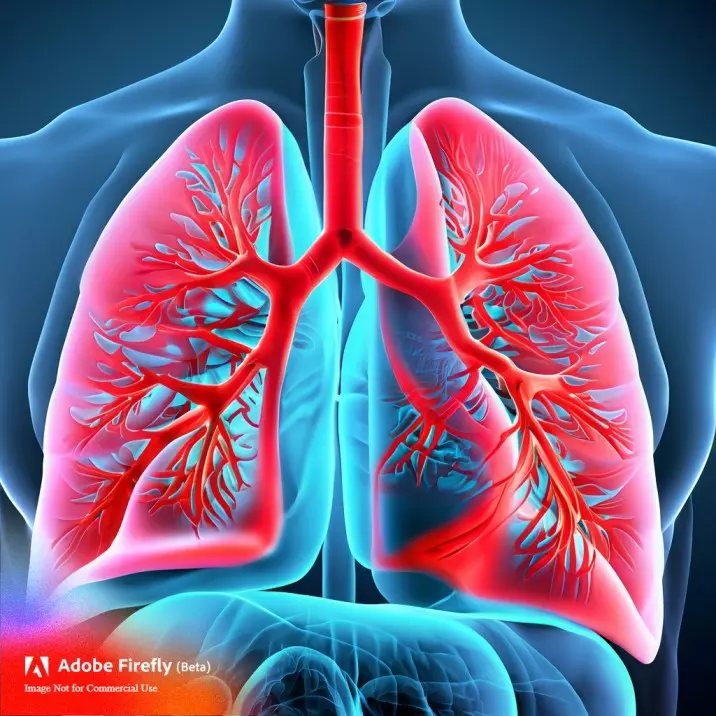Climate change is on the brink of becoming a critical factor in the deterioration of lung conditions, according to a stern warning from researchers. As global temperatures rise and extreme weather events become more frequent, the adverse impact on respiratory health is increasingly evident. This pressing concern calls for urgent action to mitigate the potential consequences and protect vulnerable populations.
The link between climate change and respiratory health is multifaceted and alarming. Rising temperatures contribute to the intensification of air pollution, which includes harmful particulate matter and ground-level ozone. Prolonged exposure to these pollutants is known to worsen lung conditions, such as asthma and chronic obstructive pulmonary disease (COPD), and can even lead to the development of new respiratory issues.
Extreme weather events, such as wildfires, hurricanes, and heatwaves, are becoming more common due to climate change. These events often result in poor air quality, increased allergens, and heat-related illnesses. Individuals with preexisting lung conditions are especially vulnerable to these climate-induced health threats, as their respiratory systems are already compromised.
Furthermore, climate change is altering the geographic distribution of allergenic plants, such as ragweed, which produces pollen that can trigger asthma and allergic reactions. Warmer temperatures can also extend the pollen season, subjecting allergy sufferers to longer periods of discomfort and potential respiratory distress.
Vector-borne diseases, like mosquito-borne illnesses, are expanding their reach as temperatures rise. Diseases such as Zika and West Nile virus can have neurological and respiratory implications, posing additional risks to individuals with lung conditions.
It’s not just the physical health effects that are concerning; climate change also has mental health implications. Anxiety, depression, and post-traumatic stress disorder can be exacerbated by extreme weather events and the uncertainty of climate change, which can indirectly affect respiratory health by increasing stress levels and reducing an individual’s ability to manage their condition effectively.
Addressing this pressing issue requires a multifaceted approach. Governments, healthcare providers, and individuals must collaborate to mitigate the impacts of climate change on respiratory health. This can involve:
1. Reducing greenhouse gas emissions: Implementing policies and practices that decrease emissions from fossil fuels and promote clean energy sources can help curb climate change and improve air quality.
2. Enhancing public health infrastructure: Strengthening healthcare systems to better respond to climate-related health challenges, including respiratory issues, is crucial. This includes improving emergency response capabilities during extreme weather events.
3. Raising awareness: Educating the public about the links between climate change and respiratory health can empower individuals to take preventive measures and reduce their carbon footprint.
4. Research and innovation: Investing in research to better understand the complex relationship between climate change and respiratory health can lead to the development of more effective interventions and treatments.
5. Support for vulnerable populations: Providing additional support and resources to individuals with preexisting lung conditions, particularly those in low-income communities, is essential to ensure their well-being in the face of climate-related health risks.
In conclusion, the warning from researchers about the detrimental impact of climate change on lung conditions is a stark reminder of the urgent need for climate action. As the world grapples with the challenges of a changing climate, it is imperative that efforts to protect respiratory health are integrated into broader climate mitigation and adaptation strategies. Only through a coordinated and proactive approach can we hope to safeguard the well-being of individuals with lung conditions and the broader population.
Also Read: Bioartificial Organs: Ongoing Research & Future Trends
https://thelogicalindian.com/h-upload/2023/09/08/500x300_233316-firefly-images-of-lungs-59914-1.webp
Trending
2023-09-08 10:44:03.0
Researchers Issue Warning: Climate Change Threatens To Exacerbate Lung Conditions











